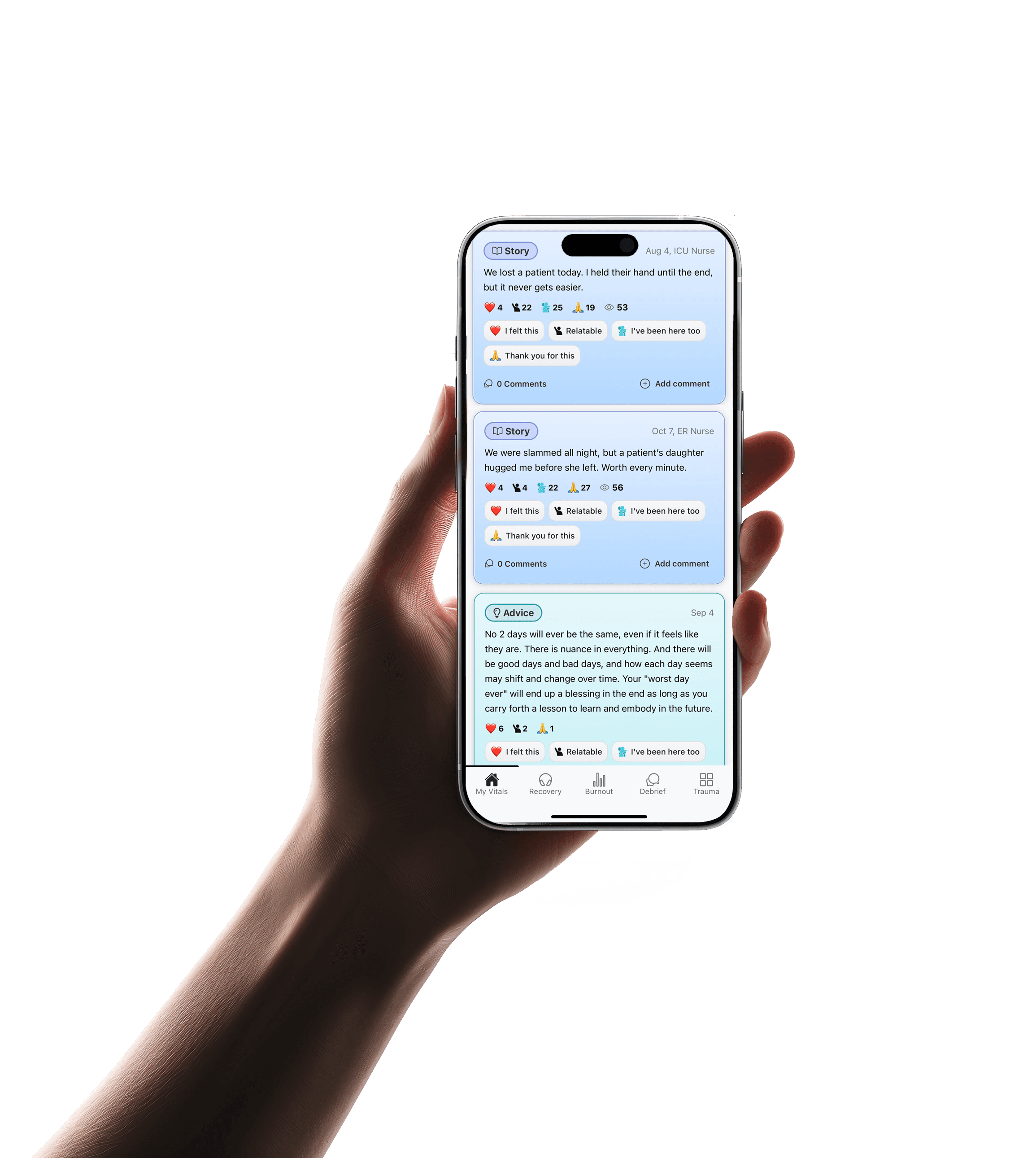Critical Analysis ofHarvard People Lab: Reducing Burnout & Resignations Among 911 Dispatchers
We review key findings and limitations of the Harvard People Lab policy brief describing a six-week advice‑giving program for 911 dispatchers, and explain how Get Vitals adapts the proven social‑support mechanism for healthcare workers.
View Original StudyHarvard Study Limitations vs Get Vitals Solutions
How Get Vitals addresses the specific limitations identified in the Harvard People Lab study, including the critical question of applicability from 911 dispatchers to healthcare workers.
Low Response Rates (28%)
The Harvard study had a 28% response rate, potentially introducing responder-specific bias that limits generalizability to broader healthcare populations.
Get Vitals Solution
Our platform tracks actual engagement and participation rates, providing realtime data on intervention effectiveness across diverse healthcare populations and settings.
Population Mismatch: 911 Dispatchers vs Healthcare Workers
The Harvard study focused specifically on 911 dispatchers, while Get Vitals targets healthcare workers. This raises questions about the applicability of findings across different frontline worker populations.
Get Vitals Solution
Strong Evidence Base: The link between burnout and social support is well-established across multiple frontline worker populations including nurses, doctors, paramedics, and emergency responders. Peer support interventions have shown consistent effectiveness across high stress, high-burnout professions.
Lack of Cohort Context
Missing moderators like work culture, job tenure, and variance between workers with previous burnout vs those without limits insight on optimal intervention timing.
Get Vitals Solution
Our platform provides personalized interventions that adapt to individual healthcare worker needs and schedules, while tracking engagement patterns to identify optimal intervention timing and effectiveness.
shortterm follow up (4 months)
The Harvard study used 4-month follow up periods, limiting understanding of longterm intervention effectiveness and sustainability of burnout reduction.
Get Vitals Solution
Our platform provides continuous monitoring and longterm tracking of burnout metrics, allowing for ongoing assessment of intervention sustainability and effectiveness.
No Engagement Data
Lack of reference to actual engagement prevents clarification of necessary 'dose response' to achieve meaningful improvement in burnout outcomes.
Get Vitals Solution
We track detailed engagement metrics and can identify the optimal 'dose response' needed for meaningful burnout reduction in different healthcare settings and populations.
Unclear Cost Savings
The Harvard study claimed $400,000 in savings but lacked detailed explanation of methodology, making it difficult to replicate or validate cost-benefit analyses.
Get Vitals Solution
We provide transparent, detailed ROI calculations with clear methodology for cost savings including reduced absenteeism, turnover, and improved productivity metrics.
Evidence‑backedpeer support for nurses.
Built with nurses and grounded in research. Short peer advice and stronger belonging reduce burnout and resignations. Get Vitals puts that science to work between shifts.
Evidence That Works
Brief peer advice and shared stories strengthen belonging and reduce burnout. Get Vitals turns that mechanism into simple, in‑the‑moment tools you can use after tough shifts.
Built for Healing
Quick recovery prompts and nurse to nurse stories.
Feel less alone, and stay connected to why you became a nurse in the first place.


"Connecting with other nurses reminds me I'm not alone. Their stories help me remember why we do this."
The Business Case
Get Vitals delivers measurable financial returns through multiple pathways, with savings accruing to both individual organizations and the broader healthcare system.
Reduced Absenteeism
Lower sick days and unplanned absences through improved mental health and reduced burnout symptoms.
Increased Productivity
Higher quality patient care and improved efficiency through better staff engagement and reduced presenteeism.
Fewer Medical Errors
Reduced medical errors and improved patient safety through better staff mental health and reduced fatigue.
Lower Turnover
Reduced recruitment and training costs through improved staff retention and satisfaction.
Savings Distribution
Healthcare Organizations
- • Reduced recruitment and training costs
- • Lower overtime and temporary staffing expenses
- • Improved patient satisfaction scores
- • Reduced medical malpractice risk
Healthcare System
- • Lower healthcare costs through reduced staff turnover
- • Improved quality metrics and outcomes
- • Reduced burden on emergency services
- • Better resource allocation and efficiency
Made for nurses
Let us support you after your next 3 shifts, free. Protect your wellbeing, recover between shifts, and bring your best self to the bedside.